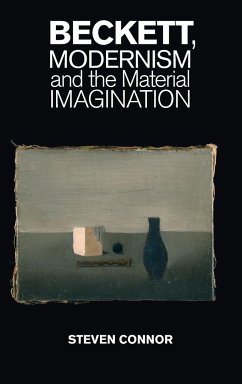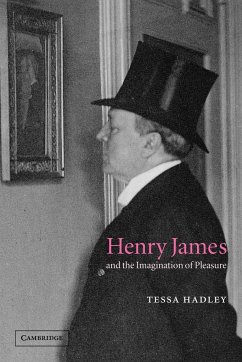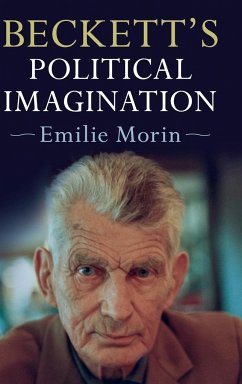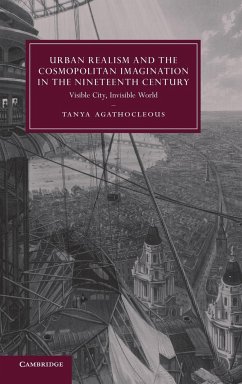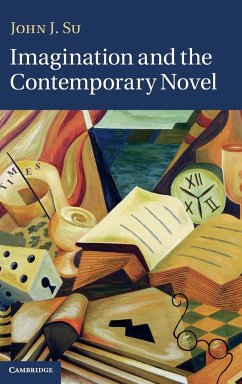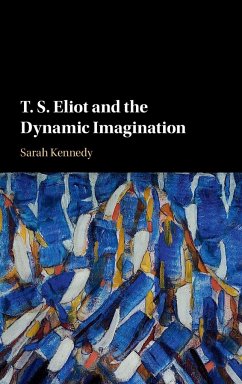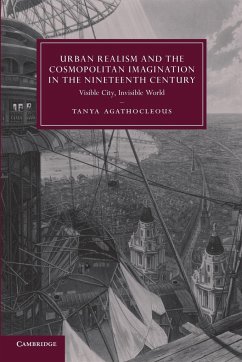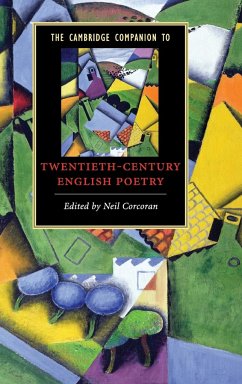
Platonism and the English Imagination

PAYBACK Punkte
63 °P sammeln!
This is the first compendious study of the influence of Platonism on the English literary tradition, showing how English writers used Platonic themes and images within their own imaginative work. Source texts include Plato's Dialogues, and the writings of Neoplatonists and the early Christians who were largely responsible for assimilating Platonic ideas into a Christian culture; and there are essays on more than thirty English authors from the Middle Ages to the twentieth century, including Shakespeare, Milton, Blake, Wordsworth, Yeats, Pound and Iris Murdoch. Each chronological section has it...
This is the first compendious study of the influence of Platonism on the English literary tradition, showing how English writers used Platonic themes and images within their own imaginative work. Source texts include Plato's Dialogues, and the writings of Neoplatonists and the early Christians who were largely responsible for assimilating Platonic ideas into a Christian culture; and there are essays on more than thirty English authors from the Middle Ages to the twentieth century, including Shakespeare, Milton, Blake, Wordsworth, Yeats, Pound and Iris Murdoch. Each chronological section has its own introduction to highlight how every age has reconstructed Platonism to suit its own understanding of the world, and there is a bibliographical guide to further reading. Established experts and new writers over a range of disciplines have worked together to produce the first comprehensive overview of Platonism in English literature.
Table of contents:
Preface; Part I. Antiquity: 1. Plato and the neoplatonists Anne Shepard; Part II. The Early Christian Period and the Middle Ages: 2. Introduction Anna Baldwin; 3. The Christian Platonism of St. Augustine Janet Coleman; 4. Boethius and King Alfred Janet Bately; 5. Chaucer's use of neoplatonic traditions Yasunari Takada; 6. Platonism in the middle english mystics Andrew Louth; Part III. The Renaissance and the Seventeenth Century: 7. Introduction Sarah Hutton; 8. The transformation of Platonic love in the Italian Renaissance Jill Kraye; 9. Uses of Plato by Erasmus and more Dominic Baker-Smith; 10. Italian neoplatonism and the poetry of Sidney, Spenser, Chapman and Donne John Doe; 11. Shakespeare on beauty, truth and transcendence Stephen Medcalfe; 12. Platonism in Spenser's mutability cantos Thomas Bulger; 13. Reason, recollection and the Cambridge Platonists Dominic Scott; 14. Platonic ascents and descents in Milton Anna Baldwin; 15. Platonism in some metaphysical poets Sarah Hutton; Part IV. The Eighteenth Century: 16. Introduction Pat Rogers; 17. Blake and Platonism Edward Larrissy; Part V. The Nineteenth Century: 18. Introduction Richard Jenkyns; 19. Recollection and recovery: Coleridge's Platonism Keith Cunliffe; 20. Wordsworth's Ode on the Intimations of Immortality Anthony Price; 21. Shelley, Plato and the political imagination Jennifer Wallace; 22. Matthew Arnold and the spirit of Plato Mark Rowe; 23. Flow, rest and number: Pater's Plato Anne Varty; Part V. The Twentieth Century: 24. Introduction Angela Elliott; 25. Yeats and Platonism Brian Arkins; 26. Virginia Woolf and Plato Brenda Lyons; 27. Plato and Eliot's earlier verse Dennis Brown; 28. The Cantos of Ezra Pound: 'to build light' David A. Moody; 29. Platonism in Auden Daphne Turner; 30. Platonism in Iris Murdoch Peter Conradi.
This is the first comprehensive overview of the influence of Platonism on the English literary tradition, showing how English writers, including Chaucer, Shakespeare, Milton, Blake, Wordsworth, Yeats, Pound and Iris Murdoch, used Platonic themes and images within their own imaginative work.
The first comprehensive overview of the influence of Platonism on English literature.
Table of contents:
Preface; Part I. Antiquity: 1. Plato and the neoplatonists Anne Shepard; Part II. The Early Christian Period and the Middle Ages: 2. Introduction Anna Baldwin; 3. The Christian Platonism of St. Augustine Janet Coleman; 4. Boethius and King Alfred Janet Bately; 5. Chaucer's use of neoplatonic traditions Yasunari Takada; 6. Platonism in the middle english mystics Andrew Louth; Part III. The Renaissance and the Seventeenth Century: 7. Introduction Sarah Hutton; 8. The transformation of Platonic love in the Italian Renaissance Jill Kraye; 9. Uses of Plato by Erasmus and more Dominic Baker-Smith; 10. Italian neoplatonism and the poetry of Sidney, Spenser, Chapman and Donne John Doe; 11. Shakespeare on beauty, truth and transcendence Stephen Medcalfe; 12. Platonism in Spenser's mutability cantos Thomas Bulger; 13. Reason, recollection and the Cambridge Platonists Dominic Scott; 14. Platonic ascents and descents in Milton Anna Baldwin; 15. Platonism in some metaphysical poets Sarah Hutton; Part IV. The Eighteenth Century: 16. Introduction Pat Rogers; 17. Blake and Platonism Edward Larrissy; Part V. The Nineteenth Century: 18. Introduction Richard Jenkyns; 19. Recollection and recovery: Coleridge's Platonism Keith Cunliffe; 20. Wordsworth's Ode on the Intimations of Immortality Anthony Price; 21. Shelley, Plato and the political imagination Jennifer Wallace; 22. Matthew Arnold and the spirit of Plato Mark Rowe; 23. Flow, rest and number: Pater's Plato Anne Varty; Part V. The Twentieth Century: 24. Introduction Angela Elliott; 25. Yeats and Platonism Brian Arkins; 26. Virginia Woolf and Plato Brenda Lyons; 27. Plato and Eliot's earlier verse Dennis Brown; 28. The Cantos of Ezra Pound: 'to build light' David A. Moody; 29. Platonism in Auden Daphne Turner; 30. Platonism in Iris Murdoch Peter Conradi.
This is the first comprehensive overview of the influence of Platonism on the English literary tradition, showing how English writers, including Chaucer, Shakespeare, Milton, Blake, Wordsworth, Yeats, Pound and Iris Murdoch, used Platonic themes and images within their own imaginative work.
The first comprehensive overview of the influence of Platonism on English literature.






